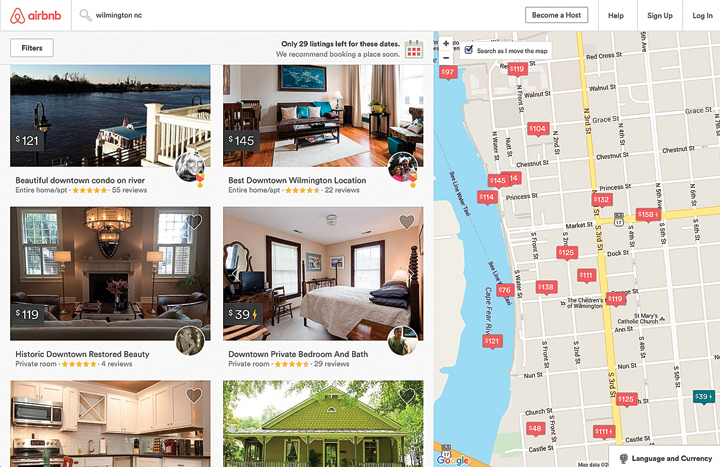A staff briefing to the Wilmington City Council did little to draw out a consensus on the controversial topic of short-term rentals in the city, as members struggled to agree on definitions and on what, if any, regulations should be applied to homeowners that rent rooms through internet sites and e-commerce channels.
City manager Sterling Cheatham told the council that staff would work to develop “tools” that can help the members better focus on the issue after the briefing sparked a wide-ranging set of questions during the Monday, June 21 briefing.
The city is considering regulating use of residential homes for weekly or weekend rentals of the type offered by sites AirBnB and VBRO. The Residents of Old Wilmington, an association representing the city’s historic neighborhood districts, asked the council in December 2015 to restrict the practice, arguing the rentals were damaging the character of the neighborhoods.
Some members noted that the issue stretched beyond just the city’s historic district.
“That’s where we’re getting the pushback, from out farther in the overlay areas,” council member Neal Anderson said.
City staff began the briefing with a proposed definition, based on state statute, of “short-term lodging,” which classified the property as primarily for tourism, rents for seven days or fewer, doesn’t serve meals and isn’t primarily residential.
Staff also recommended that the council revise the state statute on the definition of “bed and breakfast home.” But questions about the definitions and requirements persisted throughout the briefing. There were discussions as to what constituted a “private home” under the definition.
Council member Kevin O’Grady, who opposes short-term rentals in the historic district, said he believed that a resident should have to be on the property. A concern cited by the Residents of Old Wilmington was that with no property owner present, renters acted unruly and disturbed the neighborhood atmosphere.
Anderson asked why short-term renters couldn’t be regulated.
“Why can’t we just get rid of the ones that are a problem?” he said.
Requiring short-term rental operators to register with the city was one of the additional requirements the council would likely need to consider, staff said in the brief.
Short-term rentals collect a special heads-in-beds room occupancy tax that long term rentals do not.
Other issues included whether to require off-street parking, allow whole-house rentals, limit the number of bedrooms, and allow exemption for special events like the Azalea Festival.
Once the council comes to a definition of short-term lodging, it will then be tasked with deciding which zoning districts would be allowed
O’Grady and other members generally agreed that it could be a good option for commercial zoning districts. Council member Paul Lawler said that the apartments over retail stores downtown would be ideal for short-term rentals.
Wilmington Mayor Bill Saffo urged the council to proceed carefully, as both sides had strong arguments. In fact, city staff informed the council that the Raleigh City Council was having problems reaching a consensus, coming to a 4-4 vote June 7 on proposed short-term rental regulations.
“The popularity of Wilmington is putting strains on the residents of Old Wilmington. Now Wilmington is the destination, as opposed to the beaches. These are some of the strains that affect that neighborhood,” Saffo said. “Put in perspective that there is technology that exists today that gets around any kind of regulation we put in place.”
City staff proposed a public input meeting in early July, and a target date of November to vote on an ordinance, but no further meetings are set at this time.
Email [email protected]




